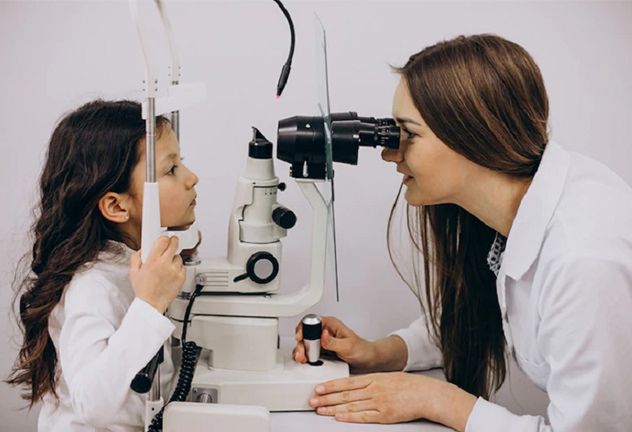Here are Eight Quick Tips to Help You Choose an Ophthalmologist:

Early detection and preventive eye care are the best ways to reduce the risk of permanent vision loss or eye injury. Your ophthalmologist will guide you in making many decisions regarding your eye health and protecting your vision. How do you find the right ophthalmologist to meet your needs? The choice of an eye doctor is just as important as the selection of a general practitioner. Your eyes are not only a window to the world outside but also to how you feel. As your eyes play a major role in your everyday life, selecting a specialist eye doctor is not something you should take lightly. Consider these main factors.
1. What type of doctor should you consult?
Eye doctors are divided into two general categories: ophthalmologists and optometrists. Optometrists can diagnose and treat some eye conditions, prescribe medication, but do not perform surgery. Optometrists must complete four years of training in optometry and then complete college. They can choose to specialize in certain eye diseases. Ophthalmology doctors in Coimbatore diagnose and treat a variety of eye diseases. They also administer medications and perform eye surgery. To become an ophthalmologist, they must complete four years in medical school and then four years as a resident. Some ophthalmologists choose to specialize for several years in a particular form of ophthalmology after completing their residency. This is not required to be considered as a generalist ophthalmologist.
2. Get Referrals
Begin by requesting a list from your eye doctor, primary care physician, or Best Eye Hospital Coimbatore. Other healthcare professionals, such as colleagues and relatives, may be able to offer you advice. Check out hospital websites for information on the qualifications and experience of doctors. There are many different subspecialties in ophthalmology, including those that treat glaucoma and disorders of the retina or cornea. You can request an appointment with each ophthalmologist to interview and meet the doctor as you narrow your list.
3. Check the credentials of an Ophthalmologist
Board certification is a very important factor to consider when selecting an ophthalmologist. Board certification indicates that a doctor has the necessary education, training, and experience to deliver the best possible treatment in ophthalmology. A fellowship in a particular subspecialty can be very beneficial. Verify that the ophthalmologist is not a defendant in a malpractice suit or has faced any disciplinary actions. You can find out about an ophthalmologist’s medical school, training facility, certification, and malpractice history on hospital websites.
4. Ask about Telehealth Capabilities
Telehealth consultations can be a great idea with the pandemic in full swing. Telehealth is the use of technology, like tablets, email, two-way recording, and telecommunications, to diagnose and treat certain patients. Ask the doctor about his or her telehealth services. Telehealth is not a substitute for face-to-face doctor appointments, but it can save patients time and money. Telehealth can be used to treat certain conditions by sending symptoms and vital signs taken at home and submitting them to a physician. You should check if your insurance covers telehealth services.
5. Take into consideration the experience of an ophthalmologist
Experience is important when it comes to eye conditions or disorders that can impair your sight. The more experience that a Best Eye Ophthalmologist has in a specific disease or treatment, the better. Ask about the experience of treating patients with your disease. Find out how many procedures the doctors performed and the rate of complications. This includes both the complications that the doctor saw and your own risk.
6. Read Patient Reviews
You can get a better idea about how the doctor practices medicine by reading what others have to say. Patient reviews usually reflect the experiences of patients with regard to scheduling appointments, waiting times, office climate, and friendliness. Patients’ reviews will tell you how much they trust their doctor, how long he or she takes with them, and how well the staff responds to questions.
7. Understand what your insurance covers
Insurance coverage is a necessity. To get the best insurance coverage, you will want to choose an ophthalmologist who is part of your plan. You should consider the qualifications of the ophthalmologist you choose, as well as their expertise, past results, and hospital quality.
8. Availability
Are you able to get service on weekends and after 5 pm?
You need to have your glasses fixed or changed during your lunch hour? Do you need glasses to go home or after your child practices at 5:00 pm? Did you wake up with an eye issue on Saturday morning? You’ll need to consult your doctor in these cases. Look for offices that have more than one physician. Appointments should be available six days a week. It is also important that the optical be open Saturdays, after 5:00 pm, and during lunch. Nothing is more frustrating than going out to run a quick lunchtime errand only to find that the office is closed. It is important to know if you can get an appointment quickly if you require urgent help. The majority of good practices triage your issues and will accommodate you if you require immediate assistance. The majority of high-quality doctors and ophthalmologists book 2 to 3 months in advance. However, depending on your symptoms, they may make every attempt to see you immediately.
Eye care specialists are professionals trained to diagnose and treat various vision-related problems, assuring their patients of optimal eye health.







